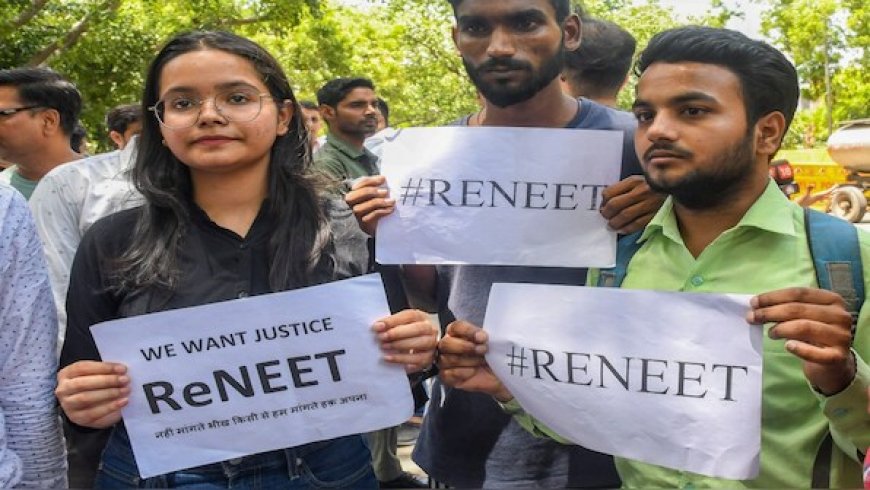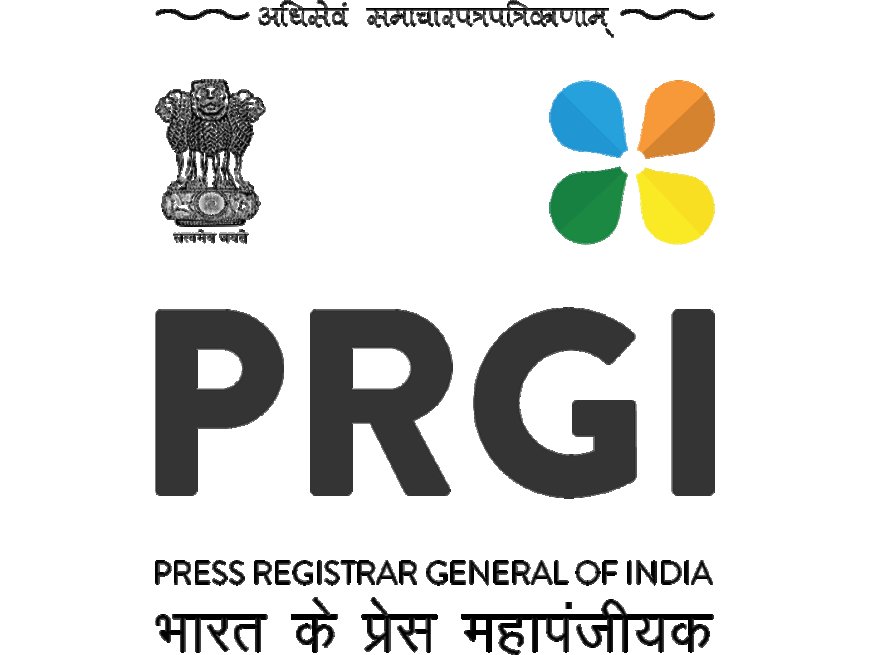Parliament Erupts Over NEET and UGC NET Paper Leak Scandal: Opposition Demands Urgent Action
Multiple adjournment notices were submitted in Parliament over the NEET and UGC NET paper leak scandal. Opposition MPs demand a full debate, citing systemic failures and rising public anxiety. The government faces mounting pressure for a transparent inquiry.

Parliament in Uproar Over Exam Integrity Crisis: NEET and UGC NET Under Scrutiny
The halls of Parliament echoed with protest and indignation this week as the Opposition mounted an aggressive demand for accountability in light of the alleged paper leaks in two of India’s most significant national-level exams — NEET (National Eligibility cum Entrance Test) and UGC NET (University Grants Commission – National Eligibility Test).
Multiple adjournment notices were moved by members of the INDIA bloc and independent MPs, seeking an immediate discussion on the cascading impact of these alleged leaks. These motions, although initially stonewalled, have ignited a larger national debate about the erosion of credibility in India’s examination system, especially for students whose careers hinge on these tests.
Background: NEET and UGC NET—Pillars of Academic Aspiration
NEET is the qualifying examination for undergraduate medical and dental courses across India. It directly affects over 20 lakh students annually, making it one of the largest entrance exams in the world. Meanwhile, the UGC NET determines eligibility for assistant professorships and junior research fellowships, playing a critical role in academic recruitment.
Both examinations are administered by the National Testing Agency (NTA)—an autonomous body under the Ministry of Education, established to ensure standardized testing procedures across India. However, recent irregularities have thrown NTA’s integrity into question, prompting sharp political reactions.
The Alleged Leaks: What We Know So Far
Allegations around the NEET paper leak began emerging from Bihar and Gujarat, where police investigations unearthed evidence of organized cheating and advance access to question papers. Several arrests were made, including coaching center operators, candidates, and middlemen.
Similarly, the UGC NET exam conducted on June 18 was cancelled within days, after intelligence inputs from agencies hinted at the compromise of its sanctity. The Ministry of Education confirmed the leak, citing breach of digital infrastructure and vowed to take “exemplary action” against those responsible.
While the investigations are still underway, the fallout has been swift: protests by students, credibility issues for NTA, and widespread calls for reform in examination governance.
Parliament Reacts: Opposition Mounts Pressure
With student anxiety translating into public outrage, Opposition parties seized the moment in Parliament. On July 29, more than a dozen MPs from Congress, DMK, RJD, TMC, and CPI(M) submitted adjournment notices in both Lok Sabha and Rajya Sabha, demanding immediate debate on the leak and the larger failures in educational oversight.
Congress MP Gaurav Gogoi called it a “systemic betrayal of India's youth,” accusing the government of failing to safeguard one of the most sacred aspects of Indian meritocracy. DMK’s Kanimozhi demanded the resignation of top NTA officials and a Parliamentary probe.
In response, Lok Sabha Speaker Om Birla declined to admit the adjournment notices, prompting sloganeering and a walkout by Opposition members. Similar scenes unfolded in Rajya Sabha, where the Chair urged for calm but refused to allow a standalone discussion, citing procedural constraints.
Government's Response: Containment and Assurances
The government, while acknowledging the “unfortunate incident,” has focused on damage control rather than full parliamentary accountability.
Union Education Minister Dharmendra Pradhan, in a brief statement, assured the House that an independent high-level committee will be formed to investigate the breaches and recommend systemic reforms. He emphasized that the culprits would face strict action and that student interests remain the government’s top priority.
However, no timelines or specifics were provided, which further intensified Opposition fury. Critics argue that without a judicially monitored probe or parliamentary debate, public trust will not be restored.
The Students’ Voice: A Generation in Limbo
Outside Parliament, the impact of these leaks has been deeply felt among aspirants and their families. Students preparing for NEET spend years in coaching, often moving cities and investing heavily in study material, fees, and living expenses. For many, the alleged leaks represent not just a security failure but a betrayal of meritocracy.
Student unions across cities like Delhi, Patna, and Jaipur held coordinated protests demanding re-examination, resignation of NTA officials, and transparent redressal mechanisms.
“Why should honest students suffer?” asked a protester outside Jantar Mantar. “Either cancel the compromised exams or hold fresh ones in a time-bound manner.”
A petition filed in the Supreme Court by aggrieved students is also awaiting hearing, seeking court-monitored reforms in NTA’s digital and physical exam security protocols.
Larger Concerns: Can NTA Be Trusted?
The paper leak scandal has exposed deeper questions about the functioning of NTA, which was created to depoliticize and modernize exam systems. However, critics argue that the body operates with limited oversight, and its accountability mechanisms are weak.
Cybersecurity experts have also raised alarms over cloud-based testing platforms, weak encryption, and vendor outsourcing without adequate checks. The rapid digitization of India’s testing regime has outpaced its ability to enforce robust security, critics say.
Even former NTA officials, under condition of anonymity, have spoken of increasing political interference, lax internal controls, and over-dependence on private vendors for exam logistics.
Political Fallout: A Crisis of Governance
The NEET and UGC NET leaks have already become a flashpoint in the broader narrative of governance and institutional integrity. As general elections approach in 2026, Opposition parties are expected to amplify this issue as a key electoral theme—especially in constituencies with high youth voter turnout.
The BJP, on its part, has attempted to insulate itself by promising technical upgrades and invoking legacy issues, pointing out that exam leaks also occurred under previous regimes. However, this defensive posture may not hold if more irregularities surface or if future exam schedules are disrupted.
Institutional Reform: A National Imperative
With faith in national examinations shaken, policy analysts are calling for immediate reform of the testing ecosystem. Proposals include:
-
A fully independent National Examination Commission, akin to the Election Commission, with oversight powers
-
Biometric verification and real-time monitoring of test centers
-
End-to-end encryption and geo-fencing of digital question papers
-
Third-party cybersecurity audits of NTA platforms
-
Legal provisions for fast-track trials and stringent punishment for exam fraud
Unless such steps are implemented swiftly, experts warn that India’s human capital development could suffer lasting damage.
Conclusion: Parliament Must Lead by Example
At the heart of this crisis is not just a paper leak, but a crisis of public trust. For a nation that prides itself on academic excellence and merit-based mobility, such incidents undermine the very foundations of social equity.
Parliament must rise above partisan bickering and acknowledge the gravity of the moment. A joint parliamentary committee or at least a dedicated debate can go a long way in demonstrating seriousness. The Opposition, in demanding such action, reflects the legitimate concerns of students and families nationwide.
Ultimately, the credibility of India's examination system rests on how transparent, responsive, and reform-driven our institutions choose to be—starting with Parliament.









